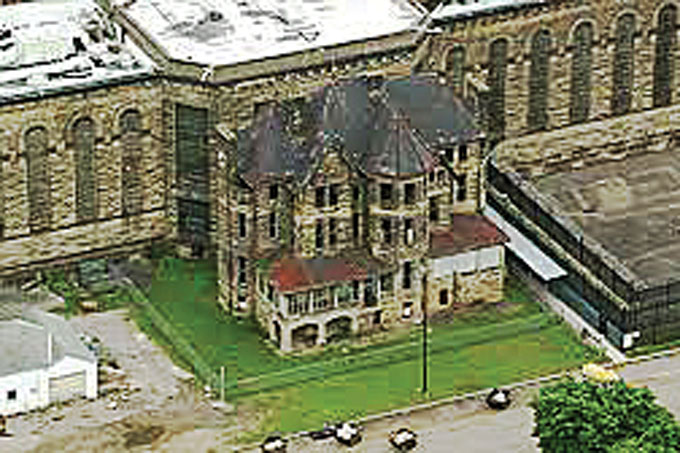
Site seen as ripe for development
Despite efforts by state Sen. Wayne Fontana, D-Brookline, to avert the closing, the Pennsylvania Department of Corrections and Gov. Tom Wolf have announced they are shuttering SCI Pittsburgh.
Though there were other options that might have saved the state more money, state officials said Pittsburgh’s not only does diverse economy allows it to withstand the loss better than other sites, but also the facility’s location offers solid redevelopment opportunities.
“In comparison to the other potential closure sites, we believe that the Pittsburgh site is at the greatest advantage for future revitalization based on its location, assets, and the city’s robust economy,” said Department of Community and Economic Development Sect. Dennis Davin.
“The southwest region has realized a steady stream of business expansions in recent years, and with SCI Pittsburgh’s close proximity to both the river and the industrial corridor, the site is likely to be repurposed quickly.”
Secretary of Corrections John Wetzel echoed Davin calling the site “a really viable economic redevelopment opportunity.”
“Obviously, we’re talking about riverfront property,” he said. “We’re talking about an area that is really growing.”
The Wolf administration initially talked about closing two prisons as part of its address a significant budget shortfall, so the Jan. 26 announcement closing only SCI Pittsburgh was a bit of a surprise. Again, said Wetzel, lessening the blow for employees and inmates was a factor. Other options would have affected more than 800 employees. This closure affects 555 employees and—as of last week 1,864 inmates.
The inmates are to be moved to Camp Hill and the employees, 300 of which are correctional officers, will be given jobs elsewhere in the system.
Pennsylvania State Corrections Officers Association President Jason Bloom said the speed with which the decision was made was unfair to the officers, who have had no time to adjust to any move—which could be as far as 90 miles away.
“The problem is for families that have laid down roots within a reasonable drive time from their job and their job site. That’s why they located where they did,” he said.
Fontana also said the process was too quick, and has offered legislation that would require more public hearings before prisons are closed. Now that it’s a done deal, he said, redevelopment is key.
“The immediate future is to find somebody interested and come up with a plan to put it back on the tax rolls and create jobs,” he said.
The site of what was called Western Penn, when it opened in 1882, is 24 acres, on the river with a city view. On the other hand, the structure itself is more than a century old.
Though there is not a lot of redevelopment history with prison sites, Beaver County sold its 1860s-era jail to a developer who disassembled it and sold the stones for reuse. The site was then redeveloped into housing. Allegheny County repurposed its jail into courtrooms.
The state would have to declare the site as “surplus property” before it could be conveyed to a developer or an entity like the city’s Urban Redevelopment Authority.
Kevin Acklin, URA chairman, called it “very valuable riverfront property.”
“It could support a number of uses, including housing, commercial and light industrial,” he said. “Securing the SCI Pittsburgh site would complement our efforts to enhance the riverfront access on a key stretch of the Ohio River.”
Like us at https://www.facebook.com/pages/New-Pittsburgh-Courier/143866755628836?ref=hl
Follow @NewPghCourier on Twitter https://twitter.com/NewPghCourier